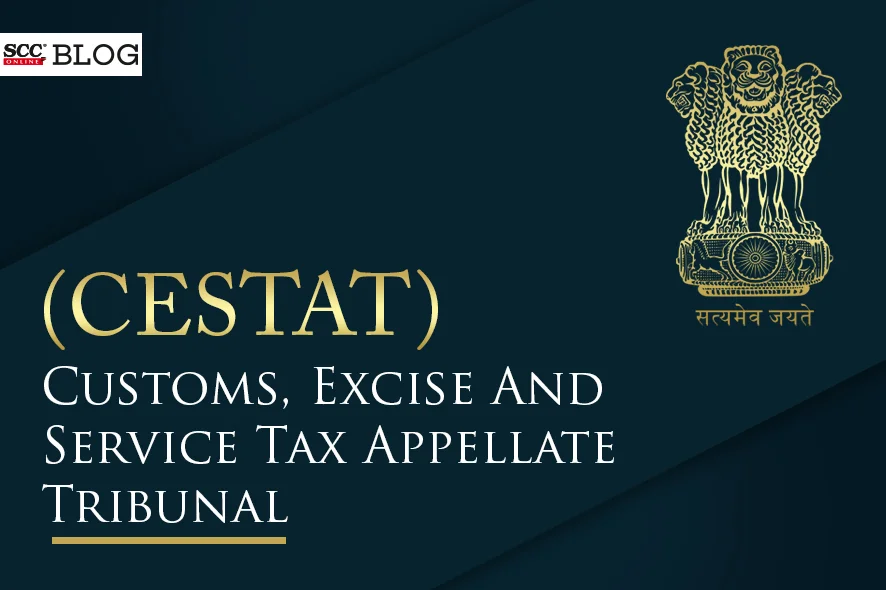Customs, Excise & Service Tax Appellate Tribunal (CESTAT), Ahmedabad – In the present appeal, the bench of Somesh Arora, (Judicial Member) and C.L Mahar, (Technical Member) opined that appellant acted only as an agent/mediator/facilitator who collected money on the behalf of the broadcasting company from the clients and had not retained the collected amount, hence the Tribunal set aside the impugned order. The Tribunal held that the determination of revenue neutrality was a question of fact and thus directed the Department to examine in detail whether the machinery provisions by way of scheme adopted by the assessee were misused. Further, the matter was remanded for a relook.
Background
Appellant was an advertising agency, who used to book either spaces in the print media or time slots in the electronic media, sold them to various clients and received payments.
The jurisdictional officer issued letters and called for appellant’s accounting records and after scrutiny, it was revealed that appellant purchased timeslots from the electronic media for which they got agency commission and then sold these to their clients and charged them service tax. Further, appellant issued bills to the clients for rendering advertising services and these bills included the gross value of broadcasting services and the service tax charged by the electronic media.
Thus, on audit it appeared to the Department that appellant collected full transaction value of advertising service fees including broadcasting agency charges as well as service tax from their clients, despite the fact that appellant was neither a broadcasting agency under Section 65(16) of the Finance Act, 1994 (‘Act’) nor had provided broadcasting services to their clients but collected service tax on the broadcasting charges from their clients.
Therefore, appellant had contravened the provisions of Section 73-A(2) of the Act and had failed to pay the amount so collected to the Central Government and hence the amount of service tax so recovered by appellant from their clients was required to be recovered from them under Section 73-A(3) of the Act. Since, appellant had contravened the provisions of Section 68 of the Act, they were liable to pay a penalty under Section 76 of the Act. Further, appellant failed to include the taxable value in the relevant ST-3 returns with the department hence was also liable for penalty action under Section 77 of the Act.
It also appeared that appellant wilfully suppressed the facts from respondent by not declaring the material facts and the correct value of taxable services, and thus was guilty of wilful suppression of actual liability of service tax with intent to evade payment of service tax. Respondent contented that appellant also had failed to deposit the service tax collected by them from the clients to the credit of the Central Government, and hence appellant was also liable for penalty under Section 78 of the Act. A show-cause notice was issued to appellant and subsequently, the matter was heard and decided by the Commissioner who conformed the show cause notice and imposed penalties. Aggrieved by the order, appellant filed the present appeal.
Analysis, Law, and Decision
Lawful deposit of tax:
The Tribunal analysed the activity and bills of appellant and found that in addition to the service of advertising agency, appellant had been acting as a mediator between the broadcasting companies and clients. The Tribunal opined that appellant had collected the service tax from the clients on behalf of Broadcasters in relations to service of “Broadcasting services” and had transferred the said service tax amount to Broadcaster for discharging service tax liability and broadcasting companies deposited such amount of service tax with the Government and discharged their duties. The demand of service tax again from appellant would amount to double payment.
The Tribunal opined that since no amount was retained by appellant, demand of service tax by applying the provisions of Section 73-A of the Finance Act, 1994 was not correct. The transaction of appellant was not covered under the provisions of Section 73-A of the Act and therefore, the impugned order confirming demand under Section 73-A of the Act was not sustainable and needed to be set aside.
Tax neutrality:
The Tribunal opined that the taxes were not only required to be paid but also required to be paid as per the machinery provisions, including the designated point of time of taxation. Any variation from it would have interest repercussions and assessee could not take shelter under the old concept of revenue neutrality, which was relevant in central fiscal legislations, only till the time, interest was not factored in machinery provisions. Therefore, the argument of appellant of revenue neutrality, appeared rejectable.
The Tribunal opined that determination of revenue neutrality was a question of fact and if machinery provisions by way of scheme adopted by the assessee were misused by allowing improper gain by way of saving of interest over normal machinery provisions relating to point of taxation and payment of duty, same could still result in demand of interest and penalties.
Therefore, the Tribunal remanded the matter for a relook as far as the interest and penalties were concerned in accordance with the provision of Finance Act, vis-à-vis, the scheme adopted by appellant, in accordance with the contract entered by them and broadcasters. Penalties likewise were to be confined for breach of machinery provisions only, if so found and not for intent to evade considering the legalities of issue involved.
[Ddb Mudra Pvt Ltd. v. CST – Service Tax, Ahmedabad, 2024 SCC OnLine CESTAT 2, decided on 09-01-2024]
Advocates who appeared in this case :
For the Appellant: A R Krishnan, Consultant
For the Respondent: A R Kanani, Superintendent (AR)






